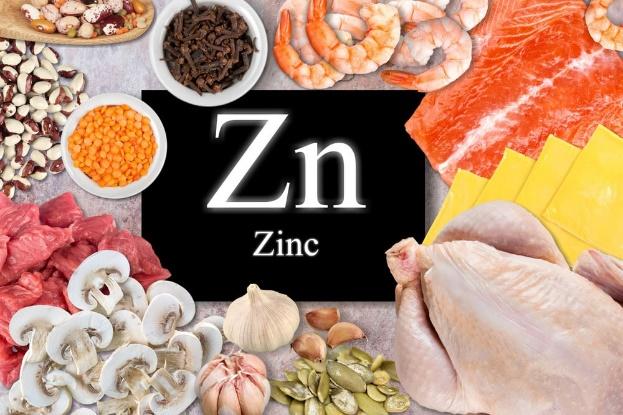Zinc, an essential nutrient present in your body, plays a crucial role in supporting your immune system and metabolism. Additionally, zinc is vital for promoting wound healing and maintaining your sense of taste and smell. Typically, a diverse diet ensures an adequate intake of zinc for your body.
Some key functions of zinc:
Enzyme Activity:
Zinc is a cofactor for numerous enzymes involved in various metabolic processes.
Immune System Support:
Zinc is vital for the normal development and functioning of immune cells.
Growth and Development:
Zinc is particularly important during periods of rapid growth, such as childhood, adolescence, and pregnancy.
Wound Healing:
Zinc plays a critical role in the healing process. It aids in collagen synthesis, which is necessary for the formation of connective tissue and wound repair.
Taste and Smell:
Zinc is involved in the perception of taste and smell.
DNA and RNA Synthesis:
Zinc is essential for DNA and RNA synthesis, which are crucial processes for cell division, growth, and reproduction.
Antioxidant Defense:
Zinc acts as an antioxidant by helping to neutralize harmful free radicals in the body.
It’s worth noting that while zinc is necessary for many physiological processes, excessive intake can be harmful.
Here are some common sources of dietary zinc:
Meat:
Red meat, such as beef and lamb, is a rich source of zinc. It is particularly high in zinc due to the bioavailability of zinc from animal sources.
Poultry:
Chicken and turkey are good sources of zinc. Both dark meat and white meat contain zinc, with the dark meat generally having higher amounts.
Seafood:
Shellfish, especially oysters, are excellent sources of zinc. Other seafood options such as crab, lobster, and shrimp also provide significant amounts of zinc.
Legumes:
Legumes like chickpeas, lentils, and beans (such as black beans, kidney beans, and pinto beans) are plant-based sources of zinc. These foods also provide other essential nutrients and are often part of vegetarian and vegan diets.
Nuts and Seeds:
Certain nuts and seeds contain zinc. Examples include pumpkin seeds (also known as pepitas), sesame seeds, hemp seeds, cashews, and almonds.
Whole Grains:
Whole grains like wheat, rice, oats, and quinoa contain zinc. However, the zinc content can be influenced by factors such as soil quality and processing methods.
Dairy Products:
Dairy foods such as milk, cheese, and yogurt contain zinc. These products also offer other essential nutrients like calcium and vitamin D.
Eggs:
Eggs provide a moderate amount of zinc. Both the yolk and the white part of the egg contain zinc, but the yolk generally has a higher concentration.
Fortified Foods:
Some food products, such as breakfast cereals, may be fortified with zinc to enhance their nutritional value. Check the product labels to identify if they are fortified with zinc.
It’s important to note that the bioavailability of zinc can vary depending on the food source and other factors.
Here are some key points about zinc deficiency:
Impaired Growth and Development:
Zinc is crucial for normal growth and development, so deficiency can lead to stunted growth in children, delayed sexual maturation, and poor fetal development during pregnancy.
Dermatological Issues:
Skin problems, such as dry skin, rashes, dermatitis, or poor wound healing, can occur with zinc deficiency.
Weakened Immune Function:
Zinc plays a vital role in immune system functioning, so a deficiency can result in an increased susceptibility to infections and impaired immune response.
Taste and Smell Changes:
Zinc deficiency can affect the senses of taste and smell, leading to a decreased ability to detect flavors or odors.
Hair and Nail Problems:
Zinc deficiency may cause hair loss, thinning hair, or brittle nails.
Digestive Issues:
Some individuals with zinc deficiency may experience diarrhea, poor appetite, or weight loss.
Impaired Cognitive Function:
Severe zinc deficiency, although rare, can lead to neurological symptoms such as poor concentration, memory problems, and cognitive impairment.

